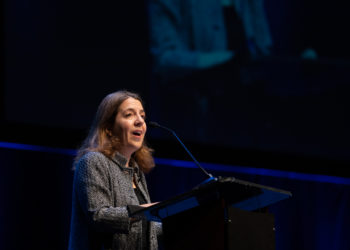This year’s Charleston Hub (again) included a significant focus on open access (OA) from the perspectives of both the publisher and library communities. The advent of the OSTP’s Nelson Memo is driving hope, change, and concern. With these impressions still fresh in my mind, I thought I’d share some of my key takeaways.

Subscribe to Open Meets Tragedy of the Commons
Subscribe to Open (S2O) is in the process of branding itself as “equitable OA.” This business model is clearly on the rise. However, for certain buyers, including corporate and governmental libraries, the —let’s face it — charitable basis of the model limits participation. Corporations will not want to pay for something they can get for free and governmental libraries often cannot do so. This does not mean that the model is not economically viable; simply that like all models, it only works in some circumstances. S2O works best with a large academic library base and carries risks, especially when budgets are tight. Moreover, as S2O conditions openness on sufficient library participation on a year-to-year basis, it is also risky for authors who must publish OA as a condition of a grant funding.
Nelson Memo Point 1
The initial reactions to the Nelson Memo have already been well covered in The Scholarly Kitchen. As a foundational point, many publishers and librarians at the Charleston Conference assume that once zero-embargo policies are finalized, compliance will often come from “Green-by-Gold,” a phrase coined by Chef Lisa Janicke Hinchliffe. In other words, APCs, transformative agreements, S2O, membership and read-and-publish agreements (collectively “OA Agreements” for brevity) will trend steeply upward as the least-resistance method to ensure compliance with Federal mandates. For publishers, Green-by-Gold is a highly feasible route to recouping investment in articles that, having been peer reviewed, would otherwise compete with the Versions of Record if published for free in accepted manuscript form.
Nelson Memo Point 2
Given Point 1 and the broader concern that zero-embargo posting of accepted manuscripts is simply not sustainable, many publishers are accelerating OA plans, preparing to enter into OA Agreements when they have not previously done so and moving beyond APC-only models. This is not just in the US, but throughout scholarly publishing. The pressure is being felt everywhere, and I had many, many conversations along the same lines.
Nelson Memo Point 3
Given Points 1 and 2, academic libraries are genuinely worried that they will be expected to pay for increased OA fees and to manage OSTP required mandates without additional resources. The OA Agreements they have entered into with publishers were generally designed and modeled around corresponding authors from a given institution, not all authors. The existing agreements were not designed to carry this additional load. New modeling is needed, as is broader adoption of persistent identifiers (PIDs) and enhanced author workflows.
Nelson Memo Point 4
As noted by Roger Schonfeld during a “Meet the Chef’s” panel, “OSTP policy is not an equitable issue, it is a compliance one. Going forward, grant officers will require a line item for publication fees prior to approving a grant for submission.” If so, this is good news. Some questions linger, however, such as when libraries manage OA Agreements and research offices receive money for APCs, how will payment workflows be managed? Is the answer different for papers published after the grants have been completed? Will research offices provide more direct funding to libraries? Will libraries continue to be the primary point of OA management when compliance (and not collections) is the primary driver of the transaction? Will there be additional funding to cover OA fees, and if not, will the money be deducted from what would have been spent on research itself?
Nelson Memo Point 5
The other implications of a mandate that covers all authors, not just corresponding ones, are not yet fully understood, and are significant. If a physics paper can have 5,000 authors, how do you identify whether one is (currently) at a given institution, especially when Gmail addresses have been used and authors change affiliations? If multiple authors are covered under separate OA Agreements, what is the hierarchy that governs payments? Is the hierarchy the same if the corresponding author is not covered by an agreement or is resource constrained? Where is the author affiliation data housed? Is it updated? Are your PIDs and supporting metadata adequate to affiliate institutions with their related schools, hospitals, departments, and institutes? How are conflicts in policy, payment or data resolved?
It appears that there’s much left to wonder about when it comes to the Nelson Memo. As one librarian said while contemplating these challenges, “Who requested this policy?”
Sidelight: I am informed that publication of this blog will earn me my official toque as a Scholarly Kitchen Chef. Achievement Unlocked.
Discussion
1 Thought on "Some Observations from Charleston (Open Access Edition):"
I see your tragedy of the commons and I give you the law of unintended consequences – how many papers does one pub from a large grant? Will your grant money cover all of them? Some? Do you have to try to figure that out before you even start? So will this limit your research output? What about unfunded research? There is quite a lot out there. A policy that forces an OA business model (and that’s what this does right) then forces everyone to adopt it – whether you have the funding for it or not. Will unfunded research sit on the shelf longer because people have to determine if the research is worth $2500, $3500 or so on? The OA model simply does not generate the same amount of revenue, not even close – how many jobs does that translate into? how many services lost? how high do OA fees go to make up for it? Journals will fold, societies will fold, services will diminish, jobs will be lost. Can anyone seriously argue that won’t happen? Is that the intent?



